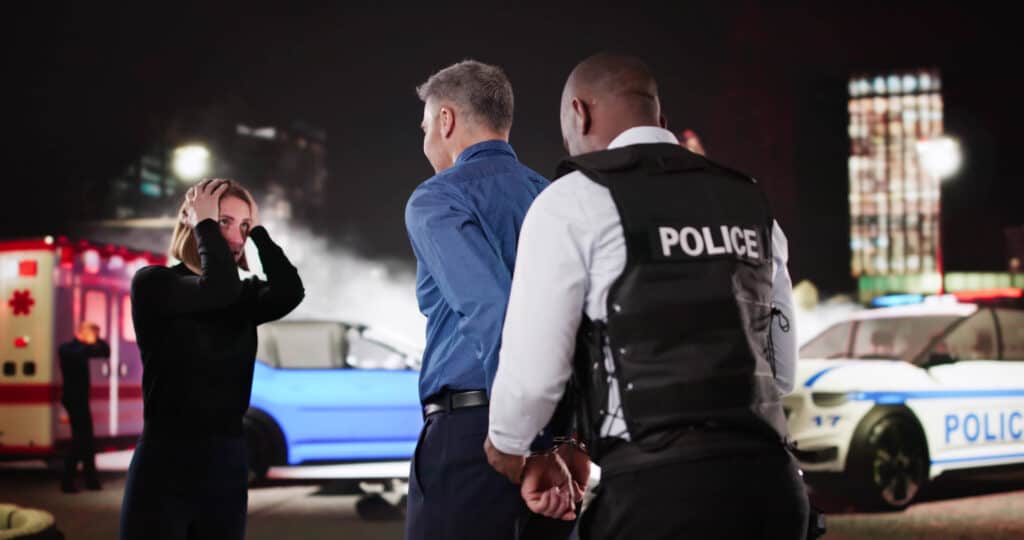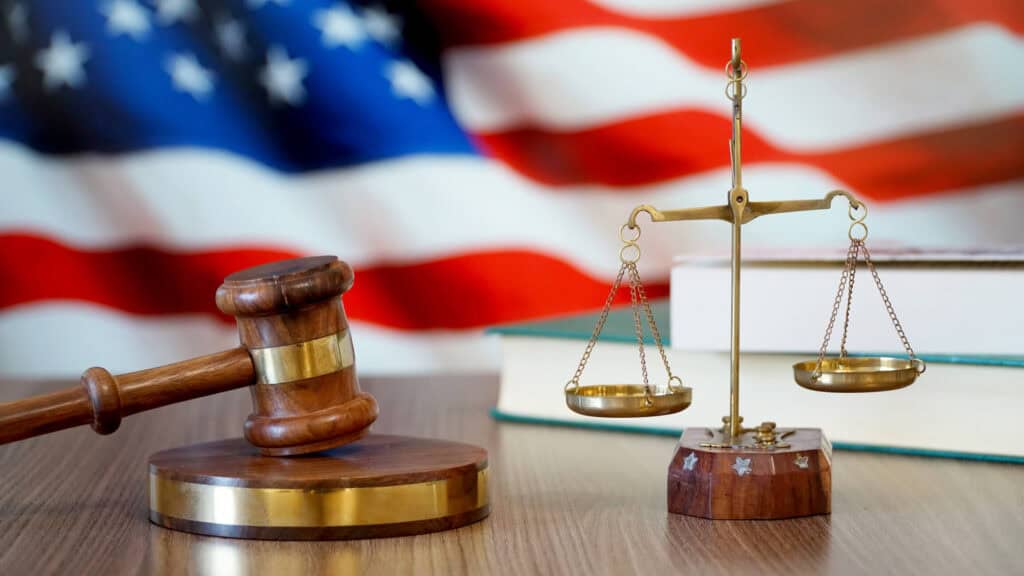When someone is arrested, one of the most well-known legal procedures is reading their Miranda rights. These rights are designed to protect a person’s constitutional protections against self-incrimination and ensure they know their right to remain silent and consult an attorney. However, many misconceptions and myths surround this process, especially concerning interrogation, evidence, and criminal procedures. Understanding the obligation to enforce these rights properly during detention and how a lawyer can guide a person through the procedure to protect their statement is essential.
Despite the widespread familiarity with the concept of Miranda rights, the public often misinterprets how and when these rights apply. This misunderstanding can have significant legal consequences in a crime investigation or related charges, especially when individuals fail to understand their full rights during police encounters. The phrase used in the Miranda warning is often treated like an item on a site map, and misconceptions arise without proper guidance or consultation. This disclaimer clarifies that not all crimes invoke the exact requirements for reading Miranda rights. In this blog post, we will break down some of the most common misconceptions surrounding Miranda rights, how they affect custody, arrest, and interrogation, and clarify the legal obligations of police and attorneys in these situations.
Common Misconceptions About Miranda Rights
One of the most common misconceptions about Miranda rights is that police must read the rights immediately after arrest. While TV shows and movies often depict Miranda warnings being read as soon as someone is taken into handcuffs, the truth is more nuanced. Miranda rights are only required when a suspect is in custody and subject to interrogation. This misconception has led to understanding when the warnings must be read. Legal sources like FindLaw and various business development solutions emphasize that Miranda rights apply specifically when the suspect’s freedom is restricted and they are being questioned about a crime.
Many individuals mistakenly believe that they are automatically entitled to a Miranda warning if they are arrested. However, if an individual is not going to be questioned, then the police are not legally obligated to provide a warning. For instance, if police arrest someone and do not plan to conduct an interrogation, a Miranda warning is not required at that time. Miranda applies when police intend to question the arrested person, and that questioning must occur after the warning has been given.
The Right to Remain Silent
Another misunderstanding involves the right to remain silent. Many people believe that if they invoke this right, the police can continue questioning them until they provide an answer. However, once individuals assert their right to silence, police must stop the questioning. This is a crucial aspect of the Miranda warning and the protection against self-incrimination.
It’s important to note that invoking the right to silence is not the same as remaining silent during questioning. To invoke the right, an individual must clearly state their intention to remain silent or request to speak with an attorney. Police are required to cease questioning once the right is invoked. Failure to stop questioning could result in excluding any statements made after invoking the right.
Miranda Rights and Waivers
Many people also believe that if the police do not read the Miranda warning, any statements made by the individual during interrogation cannot be used against them. While this is partially true, there are some crucial nuances. If the police fail to read the Miranda rights, the statements made by the suspect may be inadmissible in court, but this does not necessarily mean that the entire case will be thrown out.
In some cases, individuals may waive their Miranda rights voluntarily. This waiver must be made knowingly and intelligently, meaning the person must fully understand the consequences of waiving their rights. If someone is not fully aware of their rights or is coerced into giving up their right to remain silent, the waiver may be invalid.
Police can proceed with interrogation if the suspect voluntarily waives their Miranda rights, but this waiver must be done without duress. The police must ensure that the person understands their right to remain silent, their right to an attorney, and the consequences of choosing to speak without an attorney present.
The Legal Importance of Miranda Rights
Miranda rights are a fundamental part of the constitutional protection against self-incrimination. The Miranda warning serves as a safeguard to ensure that a suspect is fully informed about their rights when they are taken into custody. These rights are crucial because they help maintain the fairness of the legal system and protect individuals from being coerced or manipulated into providing incriminating statements.
The purpose of the Miranda warning is to prevent police from using deceptive tactics during interrogation to extract confessions. If Miranda rights are not read and a suspect is questioned, any statements made during that time could be excluded as evidence in court. This right also protects against involuntary confessions deemed inadmissible because they violate a person’s constitutional rights. At Lipp Law LCC, we emphasize that this protection is a critical safeguard to ensure that suspects are not coerced or manipulated into providing statements that could be used against them in a criminal case.
Timeline of Relevant Legal Developments
Understanding the evolution of Miranda-related laws helps highlight their importance for a criminal defense lawyer in Las Vegas. Key developments in criminal law often reference notable case law and dates. Let’s explore how Miranda rights have evolved over the years and their impact on criminal defense and police procedures.
Key Dates in the Evolution of Miranda Rights
- October 2020: This was a pivotal time in discussions about how Miranda warnings apply to modern law enforcement practices. Courts began reviewing the practical application of Miranda rights in light of technological advancements, such as body cameras and recording devices. Technology has made it easier to ensure that Miranda warnings are accurately communicated during arrests.
- November 2020: During this time, several high-profile cases addressed the misunderstanding of Miranda rights in interrogation situations. Legal scholars and practitioners debated whether Miranda warnings must be repeated if police question a person on multiple occasions. The legal community also discussed the impact of Miranda on cases involving juveniles and individuals with limited understanding of their rights.
- December 2020: In December 2020, several rulings clarified how Miranda rights should be enforced, particularly regarding custody situations where individuals are not formally arrested but are still detained by police. This helped eliminate some misconceptions about when Miranda warnings need to be provided.
- January 2021: This year saw significant cases focused on Miranda violations in interrogation procedures. Defendants argued that their right to consult with an attorney was violated, leading to a wave of decisions clarifying how Miranda warnings should be handled when a defendant is denied access to legal counsel.
- February 2021 – March 2021: Legal updates in February 2021 and March 2021 reinforced the requirement that Miranda rights be read before interrogation. However, these rulings also emphasized that a Miranda violation alone is not always sufficient to dismiss a case. A court may still consider other factors, such as whether the confession was voluntary.
- June 2021 – July 2021: The summer of 2021 brought forward debates about Miranda rights as they apply to special cases, such as those involving mental health issues or individuals with cognitive impairments. The courts examined whether certain defendants could waive their rights if they lacked the mental capacity to understand the warning properly.
- May 2022 – July 2022: Changes were made to address how Miranda warnings should be presented during this period. A few cases ruled that Miranda warnings could be communicated in various forms—such as via digital notifications or text messages—if the defendant could not physically meet with an attorney due to custody limitations.
- September 2022 – January 2023: Several cases reviewed whether a person under arrest had the right to invoke Miranda after receiving only partial information. These decisions helped clarify what constitutes an adequate Miranda warning and what happens if police fail to fully inform suspects about their right to remain silent or request an attorney.
- February 2023 – May 2023: Legal rulings over this period solidified the importance of Miranda rights in ensuring that evidence obtained during interrogation was admissible in court. Police who fail to provide the necessary warnings risk having critical evidence suppressed, a point emphasized during these years of legal refinement.
- February 2024 – March 2024: The last few years have seen more specific regulations regarding Miranda rights in high-pressure interrogation situations, where suspects may feel coerced into waiving their rights. Legal opinions from this period emphasized that suspects must make decisions to waive their rights voluntarily and with complete understanding.
- July 2024 – October 2024: The most recent rulings, including September 2024, have expanded protections for individuals who assert their Miranda rights. These cases clarify that once Miranda rights are invoked, no further interrogation can occur until an attorney is present.
- March 2025: Further updates to Miranda law are expected in March 2025 as legal practices adapt to changing societal views on custody procedures and interrogation practices.

Final Thoughts
Miranda rights are more than just scripted words. They serve as a foundation of fairness in law enforcement. If you’re facing charges, it’s crucial to speak on your behalf with the support of a skilled attorney. Misunderstanding or misinterpreting these rights can significantly affect the outcome of your criminal case.
If you have questions or concerns about Miranda rights and how they apply to your case, Lipp Law LLC is here to help. Our team of experienced legal professionals is committed to protecting your rights and ensuring you receive fair treatment under the law.
Frequently Asked Questions
Do Miranda rights apply during a routine traffic stop?
No. Miranda warnings are only required when a person is in custody and subject to interrogation. Even if you’re asked questions, a brief traffic stop isn’t “custodial” unless you’re told you’re free to leave or physically restrained.
Are statements made during a recorded phone call covered by Miranda?
Not automatically. Miranda safeguards apply when law‑enforcement officers conduct an interrogation in custody. If you’ve recorded outside of those circumstances—say, via a warrant or voluntary call—those rules may not trigger.
Does a written confession require Miranda warnings?
Yes, if it’s obtained through a custodial interrogation. Courts treat written statements like oral ones: the warning and waiver rules apply if you were handcuffed or otherwise deprived of freedom and questioned.
Can failure to administer Miranda warnings affect consent to a search?
Generally, no. Miranda protects against self‑incrimination, not searches. But if the same questioning that produced an unwarned confession also led you to consent, a court might scrutinize whether that consent was voluntary.
Do Miranda rights apply outside the United States?
No. Miranda is a U.S. constitutional doctrine. Other countries have rules about warnings and detention, so you’d need to look to local law abroad.
What exactly counts as “interrogation” under Miranda?
Interrogation includes direct questioning or any tactic—like presenting evidence—to elicit incriminating responses. Routine booking questions (name, address) aren’t interrogation, but anything intended to obtain a statement is.
Can a suspect volunteer statements without Miranda warnings?
Yes. Spontaneous, unsolicited remarks made before any custodial interrogation aren’t covered. However, once questioning begins, warnings are required before further statements.
Does remaining silent after hearing the warning automatically invoke Miranda?
No. To invoke, you must clearly state your intention to remain silent or request an attorney. Merely pausing or saying nothing can be ambiguous, and police may continue questioning until you explicitly assert your rights.
Are minors given special protections under Miranda?
Courts often require additional safeguards—like having a parent or attorney present—when questioning juveniles. Whether a minor truly understands the warning is evaluated case‑by‑case.
Can a suspect re‑invoke or waive Miranda rights after initially invoking them?
Once you invoke your right to silence or counsel, questioning must stop. To re‑initiate, officers need you to unambiguously waive those rights again—something that must be done knowingly and voluntarily.







